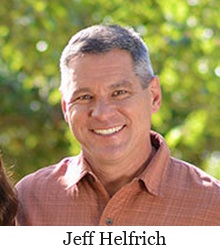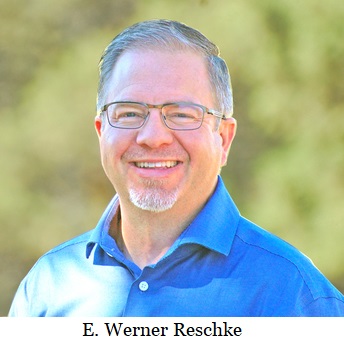
On this day, August 30, 2020, President Trump and Portland Mayor Ted Wheeler (D) traded harsh criticism of each other over violent clashes between anti-racism protesters and conservative counter protesters, a day after the fatal shooting of a member of the right-wing group Patriot Prayer. Patriot Prayer's founder, Joey Gibson, has held pro-Trump rallies repeatedly in Portland and other cities since 2016. Oregon Gov. Kate Brown announced that state police will patrol the nightly protests in Portland with help from officers from neighboring communities.
 Post an Event
Post an Event
| Benton County Republicans’ Private Fundraising Event, “Bent-on Boots and Bling” with Trey Taylor |
| Friday, September 5, 2025 at 5:00 pm |
| Featuring Trey Taylor
Music Private Event
Friday, September 5, 2025 5:00-5:30 pm VIP Reception
5:30-8:00 pm Heavy Appetizers,
Auction, Concert
Red: $750 VIP Reception
Front Row Table Sponsor
White: $500 Table Sponsor
Blue: $50 per person
Limited Seating. Get Yours Now!!!
Support Local
Dress up: Bling, Cowboy, Patriotic Benton County Republican
FUNDRAISER
www.BentonGOP.org
Get your tickets today at:
https://www.bentongop.org/event-details/benton-county-republicans-fundraiser/form
About Trey:
Trey is the youngest African American Man in Country Music History. The Denver Post wrote
"It's impossible to miss his enthusiasm. With a fondness for cowboy boots, gaudy colors and dazzling jewelry, Trey Taylor could stand toe to toe with any of the Pop, Country or even Rap
contemporaries of his generation.“ |
| Trysting Tree Golf Club, 34028 NE Electric Rd., Corvallis |
Stand with Texas on Securing the Border
A group of Oregon House and Senate Republicans along with the Chair of the Oregon Republican Party
penned a letter to Texas Governor Greg Abbott applauding his unprecedented efforts to secure the southern border in the absence of support from the White House and federal agencies.
“The flow of
deadly drugs from cartels into America hugely contributes to the drug crisis we’re seeing in Oregon and remains out of control due to Measure 110. If we don’t stop the flow of cartel drugs funneling into American cities – even if we ramp up treatment services and enhance penalties for dealers and users in Oregon – this crisis will persist,” said Representative Chris Goodwin (R-Canyonville). Governor Abbott and my colleagues who signed this letter recognize the seriousness of this situation and the long-term ramifications of doing nothing to remedy it.”
The letter also discusses the broken immigration system in the U.S. which must be fixed with strong leadership from Congress and a President willing to make tough decisions.
“Legal immigration has long been a part of America’s fabric, but let’s not forget we are also a nation of law and order. Opening the border to mass illegal migration ignores who we are as a country and disrespects those who came here for a better life the legal way,” said Senator Dick Anderson (R-Lincoln City).
--Staff Reports| Post Date: 2024-02-06 12:14:05 | Last Update: 2024-02-06 19:58:39 |
Legislation sets new climate change emission requirements
The Oregon Short Session limits each legislator to 2 bills, which equals 180 bills, but committees are unlimited. Senator Michael Dembrow is Chief Sponsor on 11 bills and has pursuaded committees to sponsor bills for him. He is chief sponsor of
SB 1559 with three others, so does that count as 25% of one of his allotted bills?
Global warming is not panning out for the liberals so rather than see the deceptiveness in the concept, they pursue, full-steam ahead, under climate change while the natural gas usage increases. Was Gandhi talking about climate change when he said, “Earth provides enough to satisfy every man's need, but not every man's greed.”
SB 1559 changes the term "global warming" to "climate change" in some laws, and modifies state greenhouse gas emissions reduction goals. This is all declared as an emergency so Oregonians can’t instigate an initiative to overturn it, even though no provision will have immediate implementation.
The first change comes in the form of a declaration to reduce greenhouse gas emissions in Oregon consistent with practices to limit global warming to 1.5 degrees Celsius. We are 1.1 degrees Celsius above pre-industrial levels now. Capping average global temperature at 1.5 degrees C (equivalent to 2.7 degrees Fahrenheit) doesn’t happen without hardships on everyone.
The goals for 2010, 2020 and 2050 are changed in Section (1) to:
- (a) By 2030, achieve greenhouse gas levels that are at least 45 percent below 1990 levels.
- (b) By 2040, achieve greenhouse gas levels that are at least 70 percent below 1990 levels.
- (c) By 2050, achieve greenhouse gas levels that are at least [75] 95 percent below 1990 levels.
A D V E R T I S E M E N T

A D V E R T I S E M E N T
Section (2) is added as another declaration that is assumed to be the desire of the entire state:
(2) In addition to the greenhouse gas emissions reduction goals described in subsection (1) of this section, it is the aspiration of this state to achieve net zero emissions as soon as practicable, but no later than 2050, and to maintain net negative emissions thereafter.
“Net negative emissions” means the amount of greenhouse gases emitted into the atmosphere is less than the amount of greenhouse gases removed from the atmosphere, as determined by emissions accounting best practices over a specified period of time.
“Net zero emissions” means the amount of greenhouse gases emitted into the atmosphere is equal to the amount of greenhouse gases removed from the atmosphere, as determined by emissions accounting best practices over a specified period of time.
You can
register to receive email updates on this bill as it passes through the session.
--Donna Bleiler| Post Date: 2024-02-03 17:36:44 | Last Update: 2024-02-03 18:22:35 |
“Oregon has become a magnet for drug cartels to distribute poison”
Four suspected drug traffickers with apparent ties to a Mexico-based transnational criminal organization are facing federal charges today after they were caught transporting nearly 370 gallons of liquid heroin.
Marco Antonio Magallon, 44, Luis Deleon Woodward, 26, and Jorge Luis Amador, 25, all of Yakima, Washington, and Santos Alisael Aguilar Maya, 32, whose place of residence is unknown, have been charged by criminal complaint with conspiracy to distribute and possess with intent to distribute heroin and possess with intent to distribute heroin.
According to court documents, on January 24, 2024, as part of an ongoing, multi-agency drug trafficking investigation, law enforcement obtained information that several individuals working for a transnational criminal organization were transporting a large load of illegal narcotics into the District of Oregon. Late in the evening of January 24 and in the early morning hours of January 25, 2024, investigators observed a rented moving truck driven by Amador and an accompanying red pickup truck traveling west on Interstate 84 near Bonneville, Oregon. Investigators observed the vehicles travel together to a motel in Tigard, Oregon, making one brief stop in a commercial parking lot in Beaverton, Oregon.
Later on January 25, investigators executed federal search warrants on the defendants’ motel room and two vehicles. They located and seized eight 55-gallon barrels containing approximately 370 gallons of a liquid narcotic inside the moving truck and two loaded handguns inside the motel room. All four defendants were arrested without incident. Investigators transported the seized narcotic, which weighed approximately 1.4 metric tons, to the Washington County Sheriff’s Office (WCSO) narcotics room. Lab tests later confirmed the barrels contained liquid heroin.
This case is being investigated by Homeland Security Investigations, WCSO, and the Westside Interagency Narcotics Team. It is being prosecuted by Scott M. Kerin, Assistant U.S. Attorney for the District of Oregon.

“Oregon has become a magnet for drug cartels to distribute poison that’s killing Oregonians. This is another example of how failed polices like Measure 110 and the open southern border put our state in danger. We must change course to save more lives,” said House Republican Leader Jeff Helfrich (R-Hood River), a retired Portland police officer.
House Republicans have introduced HB 4036 to structurally reform the broken Measure 110 so that Oregon can begin to address the out-of-control crises of drugs, homelessness, and crime that plague the state.
The Republican bill classifies possession of deadly drugs like fentanyl, heroin, and meth as a Class A Misdemeanor, mandates treatment to avoid jail time, bans public use, and requires evaluation and treatment as part of probation for certain drug and property crimes. It requires prison sentences for drug dealers and manufacturers with multiple convictions, and increases the penalties for drug dealers who sell drugs that result in the death of a person.
--Staff Reports| Post Date: 2024-02-02 17:33:13 | Last Update: 2024-02-02 17:49:54 |
Measure 110, housing supply, protect the kicker from Democrats
Senate Republican Leader Tim Knopp (R-Bend) outlined the
Senate Republican Caucus’ priorities for the 2024 Legislative Session in a press conference with Republican and Democrat legislative leaders.
“Decades of one-party Democrat control has created a severe housing shortage, increased costs for families, and made it extremely difficult for businesses to thrive in Oregon. Meanwhile, homelessness, drug addiction, and violent crime have eroded the fabric of our communities – especially since the passage of Measure 110,” said Leader Knopp. “Senate Republicans’ agenda focuses on course correcting the Legislature’s response to Oregon’s growing problems by abandoning failed policies of decades past and embracing bold solutions that will put Oregon on a path to success.”
The Senate Republican Caucus’ priorities for the 2024 Session are:
Boosting Housing Production
The severe housing shortage that exists in Oregon today was created overtime by status-quo liberal policies that have handcuffed cities, overregulated builders, and stifled development. Senate Republicans are proposing commonsense reforms which will free up land to invest in housing of all types in all communities, not just Portland.
Priority Legislation: SB 1564
Addressing Drug Addiction, Homelessness, and Crime
Drug addiction, homelessness, and crime have soared in recent years – especially since Measure 110. Communities have suffered and lives have been lost. Senate Republicans are introducing several key bills aimed at getting these issues under control and saving lives. Some policies focus on treatment for drug addiction, and others support victims of child abuse.
While special interest activists and far-left Democrats defend the Measure 110 disaster, most Oregonians say it’s time for drastic change. The Legislature must course correct and create a better policy that puts people on a path to recovery. Senate Republicans believe Measure 110 reform must recriminalize drug possession to a Class A Misdemeanor, giving law enforcement what they need to provide accountability that will require treatment for addiction as a diversion from jail. Reform must also ban public use of hard drugs, enhance penalties for drug dealers, fund specialty drug courts, and allow counties – not OHA – to address needs at a local level.
Priority Legislation: SB 1555, SB 1588, SB 1579
Defending the Kicker, Growing the Economy, Lowering Costs
Oregon is an amazing place to call home, but it comes with a high price tag. Inflation coupled with high taxes, fees, and burdensome regulations pushed by Democrat lawmakers has made Oregon so expensive to live, operate a business, and raise a family that people are fleeing in huge numbers. Senate Republicans will push for lower taxes for small businesses, financial relief for wildfire victims, income tax exemptions for veterans, and property tax exemptions for seniors, while fighting Democrat attempts to raise taxes and take the Kicker from working Oregonians.
Priority Legislation: SB 1542, SB 1549, SB 1520, SJR 202, SB 1543
Protecting Constitutional Rights Threatened by Democrats
Senate Republicans place great importance on protecting the constitutional rights of Oregonians whether it be the 2nd Amendment or the Kicker. This will remain a focus throughout the entire Session as tyranny of the majority is often an inevitable reality in the Democrat-controlled Legislature.
--Staff Reports| Post Date: 2024-02-01 12:19:42 | Last Update: 2024-02-01 20:34:26 |
“The Legislature has failed to act on multiple occasions”
Following the failure of the Legislature to fulfill its Constitutional duty to ensure transportation taxes are “fair and proportionate,” the Oregon Trucking Association is suing the state over hundreds of millions in overpaid taxes. The lawsuit alleges that the overpayments violate
Article IX, Section 3(a)(3) of the Oregon Constitution.
“As a proud owner of a family-operated trucking business myself, I fully support the Oregon Trucking Association’s lawsuit against the state of Oregon for overpayment of weight mile taxes,” Representative Shelly Boshart Davis (R, Albany) said. “Our trucking businesses have been paying far more than our fair share of highway taxes for too long. By 2025, that number will total half a billion dollars in overpayments. I urge my colleagues in the Legislature to consider future opportunities to resolve this injustice.”
Republican lawmakers previously called for a special session to adjust the taxes. Democrats voted down the special session, with the majority of Senate Democrats failing to register any vote at all.
A D V E R T I S E M E N T

A D V E R T I S E M E N T
The Legislature has failed to act on multiple occasions. The Legislature did not take up legislation at the end of the 2023 session following a delayed
Highway Cost Allocation Study. The Oregon Department of Transportation estimates that freight trucks will overpay their fair share of transportation taxes by $193 million annually for the next two years. Past HCAS reports also show large overpayments by the trucking industry in previous years.
--Staff Reports| Post Date: 2024-01-31 06:51:55 | |
“This problem is bigger than one city”
As solutions continue to be sought for the failure of Measure 110, Governor Tina Kotek, Multnomah County Chair Jessica Vega Pederson and Portland Mayor Ted Wheeler each declared a 90-day state of emergency to address the public health and public safety crisis driven by fentanyl in Portland’s Central City. The tri-government fentanyl emergency declarations follow a recommendation put forward by the Portland Central City Task Force, unveiled at the Oregon Business Leadership Summit late last year.
“Our country and our state have never seen a drug this deadly and addictive, and all are grappling with how to respond,” Governor Kotek said. “The Chair, the Mayor and I recognize the need to act with urgency and unity across our public health and community safety systems to make a dent in this crisis. We are all in this together. The next 90 days will yield unprecedented collaboration and focused resources targeting fentanyl and provide a roadmap for next steps.”
All three emergency orders direct the
City,
State, and
County to commit available resources to the unified response. A command center will be stood up in the central city where state, county and city employees will convene to coordinate strategies and response efforts. Each level of government has identified an incident commander who will be responsible for coordinating resources from the jurisdiction they represent. They are as follows: Nathan Reynolds, Deputy Chief of Policy and Mission Support at the Office of Resilience and Emergency Management for the state, former Health Officer Dr. Jennifer Vines for the County, and Mike Myers, Director of the Community Safety Division for the City.
A D V E R T I S E M E N T

A D V E R T I S E M E N T
The Command Center will serve to refocus existing resources. It will also share and publicly report data on the impacts of fentanyl in downtown, use data to identify and respond to acute needs and gaps in service, identify any specific resources necessary to address gaps, and establish a system to coordinate that can be sustained beyond the 90-day startup period.
 HB 4036
HB 4036 is the House Republican bill proposed to solve some of the problems caused by Measure 110. The bill reclassifies possession as a Class A Misdemeanor, the standard that Oregon’s district attorneys and law enforcement community agree is necessary to have any real leverage in undoing the damage. It also increases penalties for the drug dealers pushing poison into our communities.
HB 4036 prioritizes getting people clean through voluntary diversion and treatment programs or mandatory recovery programs, consistent with the will of the people. It also directs treatment dollars to responsible and accountable county governments instead of what Republicans call "shadowy, well-connected special interest groups that have failed to deliver for Oregon."
“Three years after Measure 110 initiatives started to ravage Oregon and over a year after she began her administration, Gov. Kotek has finally identified that Portland has a fentanyl crisis. While it’s about time, this problem is bigger than one city; we remind the Governor that this crisis has spread across the entire state. We welcome her to join Republicans in pursuing serious policy solutions - like
HB 4036 -- and ask her to urge her fellow Democrats in the legislature to do the same,” said House Republican Leader Jeff Helfrich (R-Hood River).

”If you or a loved one is struggling with a fentanyl addiction, we hear you, we see you and we are taking this crisis seriously,” Chair Jessica Vega Pederson said. “We are acting with shared leadership to take urgent action today to respond to the very human toll fentanyl takes in our community, including overdoses, fatalities and day-to-day suffering, and the fear so many families are experiencing as a result.”
At the state level, resources will be deployed from the Oregon Department of Human Services of Office Resilience and Emergency Management, the Oregon Department of Emergency Management, the Oregon Health Authority, and the Oregon State Police.
Multnomah County will marshal and direct resources from the Health Department , County Human Services , Community Justice , County Assets , Joint Office of Homeless Services , and Emergency Management and our network of partners and providers. Through coordinated outreach, the County will work to prevent exposure and use of fentanyl; reduce harm among people using substances; and increase access to outreach, treatment, recovery, and housing services.
The Health Department will launch two public education campaigns during the 90-day emergency featuring transit, billboards, digital media, streaming audio, and more. These highly-visible messages will promote prevention among youth and the effectiveness of recovery in transforming lives, and reduce stigma for treatment.
A D V E R T I S E M E N T

A D V E R T I S E M E N T
The County will also increase the visibility and coordination of County contractors conducting outreach on the streets, distribute and train partners on the use of Narcan and issue reports on overdose data. Targeted outreach will leverage services from the downtown Behavioral Health Resource Center. The center—strategically located in the Central City— will offer immediate access to day services and improve connection to care.
City of Portland will deploy providing public safety, addiction and public health services, crisis response, and other resources and services to those impacted by the fentanyl crisis.

Specifically, a combination of disciplines will be coordinated and deployed including peer outreach, and behavioral and public health services to move individuals experiencing a fentanyl addiction into treatment and provide other stabilization services, as well as continued missions between the Portland Police Bureau and Oregon State Police to hold individuals selling the drug accountable.
“I am pleased to have Governor Kotek and Chair Vega Pederson join the City of Portland’s ongoing efforts to address the deadly fentanyl crisis impacting our community. Today, we move forward with urgency to address these challenges together under the authority of emergency declarations. This is exactly the type of coordinated action needed to make a direct impact and a lasting difference,” Mayor Wheeler said.
--Staff Reports| Post Date: 2024-01-30 14:04:16 | Last Update: 2024-01-30 14:51:38 |
House Democrats also elected Rep. David Gomberg to serve as Assistant Majority Leader
Members of the Oregon House Democratic Caucus have selected House Majority Leader Julie Fahey as their nominee for Speaker of the House, a position that will be filled by a vote of the full House chamber when Speaker Dan Rayfield ends his term as Speaker.
Earlier, Speaker Rayfield shared a letter with legislators announcing his intention to remain Speaker through the February legislative session, and for the chamber to elect a new Speaker at the conclusion of the five-week session. Speaker Rayfield plans to continue representing House District 16 through the end of the current term. “I’m deeply honored to have earned the Democratic caucus’s nomination for Speaker of the House. Right now, we’re 100% focused on ensuring that our February legislative session delivers real results on the issues Oregonians care most about,” says Rep. Fahey, who has served as House Democratic Leader since January2022. “My commitment is to serve the people of Oregon with respect, common sense, and collaboration as we tackle the biggest issues we’re facing across this state.”
“Serving as Speaker of the Oregon House of Representatives has been the honor of my life, and I want to leave this post in the same spirit that I have served: creating an effective and respectful environment, being clear and transparent in our work, and always putting the interests of Oregonians first,” says Speaker Rayfield. “I will leave the Speakership with a deep gratitude for having been entrusted with this responsibility, and excitement about what will come next for the People’s House.”
A D V E R T I S E M E N T

A D V E R T I S E M E N T
House Democrats also elected Rep. David Gomberg to serve as Assistant Majority Leader, following Rep. Maxine Dexter’s decision to step down from that role. Rep. Gomberg has represented Oregon’s Central Coast since 2013. “Geographic diversity is critical when it comes to making decisions that impact our state, especially when it comes to issues like transportation, economic development, housing, infrastructure, and more,” says Rep. Gomberg. “I’m committed to bringing a unique perspective from rural Oregon to the House Democratic Leadership Team.” The 35-day legislative session begins on February 5 and will be focused on addressing the urgent needs facing the state: Housing and homelessness, addiction and behavioral health, and public safety.
--Staff Reports| Post Date: 2024-01-30 13:46:58 | Last Update: 2024-01-30 14:21:21 |
OHA’s willingness to cripple our industries while defrauding the legislature is a disgrace
In the wake of a bombshell
Oregonian story that the Oregon Health Authority buried a report that described minimal changes in drinking habits by increasing beverage taxes, House Republican Leader Jeff Helfrich echoed the outrage
expressed by other members of the House.
“Let’s start with the obvious: there is no universe where OHA should have hidden this report from the public," said House Republican Leader Jeff Helfrich (R-Hood River). "Their job is to make an informed recommendation to the legislature about how to best pursue better health outcomes for Oregonians while also weighing the economic impacts. OHA has potentially compromised the entire task force by putting it’s thumb on the scale.
Helfrich continued, "Cute statements about how a 2% reduction in consumption is “potentially huge” do not excuse what might one of the most brazen attempts at a cash grab by a government agency and I want to know who made this decision to not release this information. Further, OHA’s willingness to cripple our beer, wine, spirits, and hospitality industries while defrauding the legislature is a disgrace. It may seem like we’re making a mountain out of molehill, but this is the same agency that is responsible for collecting data regarding drug use and treatment under Measure 110 initiatives. Data that we’re being told doesn’t exist, is too hard to collect, or can’t be used.
A D V E R T I S E M E N T

A D V E R T I S E M E N T
OHA’s behavior calls all of that into question," continued Helfrich. "Do we not have the data? Or is it that the data confirms what everyone is seeing: that M110 is a disaster, that current leadership has horrifically failed with programs that don’t work, and that throwing money to connected special interests has failed to deliver results – and never will. OHA has a lot of explaining to do.”
--Staff Reports| Post Date: 2024-01-29 16:43:42 | |
Most people just want to quit switching clocks
Legislators in Oregon, Washington, Idaho and California are planning to introduce bills this year to put their states on standard time year-round. Senator Kim Thatcher (R-Keizer) will introduce Senate Bill 1548 in Oregon.
“Oregonians have long-expressed their desire to stop changing the clock,” said Thatcher. “Some prefer keeping daylight saving time over standard time, and many don’t care which – they just want to stop changing the clock. Since daylight saving time is just not possible without congressional approval, and after waiting five years for Congress to approve a DST bill that passed here in Oregon in 2019, standard time has become a common-sense choice for 2024 and doesn’t need approval from Congress. Research also shows standard time is the healthier choice! I’m grateful to have the privilege of working with our surrounding states as they, too, introduce bills to ditch the switch!”
In Washington,
Senate Bill 5795, introduced by Senator Mike Padden, received a public hearing in the Senate State Government and Elections Committee.
“If there is one issue most people agree on, it’s the dislike of moving their clocks from standard time to daylight saving time in the spring and then back to standard time in the fall,” said Padden of Spokane Valley. “There have been scientific studies connecting several health problems with switching back and forth between standard time and daylight saving time, including greater risks of heart attacks and more frequent workplace injuries. This bill would allow Washington to finally ‘ditch the switch’ by keeping us on standard time permanently.”
In California, Assemblyman Tri Ta of Westminster has introduced
Assembly Bill (AB) 1776 and is awaiting a committee hearing. “California voters are tired of disruptive time changes that have outlived their usefulness,” said Ta. “I am honored to join this multi-state coalition, and I know that this will make a difference to promote the health of the people of California and across the American West.”
A D V E R T I S E M E N T

A D V E R T I S E M E N T
The principal co-author of AB 1776, Senator Roger Niello of Fair Oaks, shared, “I am glad to be collaborating with representatives of multiple states to make standard time permanent.” He continued, “Different legislative processes and timelines can be challenging, but we are all working together to make Pacific Standard Time permanent so that our constituents can avoid the disruptive process of adjusting their clocks twice a year and adapting to the time change.”
“In Idaho our standard time bill has been drafted as RS30948 and will move to the House State Affairs Committee within the next 10 days, where we are confident of its passage,” said Idaho state Representative Joe Alfieri of Coeur d’Alene.
--Donna Bleiler| Post Date: 2024-01-27 11:08:29 | Last Update: 2024-01-26 18:02:49 |
“Her passion for Western issues will be a great addition to the board”
Oregon Farm Bureau Federation President Angi Bailey was elected to represent the Western Region on the American Farm Bureau Federation Board of Directors. The Western region consists of 13 states and holds five seats on the AFBF board. The board plays a pivotal role in shaping federal policy related to agriculture and natural resources.
"With the depth and breadth of challenges facing Oregon farmers and ranchers, including issues surrounding ag labor, the farm bill, water and drought, and livestock predation just to name a few, this board seat secures Oregon and the West a voice at the table and gives us a national platform to highlight the unique challenges we face,” OFBF President Bailey said. “I will never take this responsibility lightly. I look forward to advocating for Oregon, and the rest of the West, in this new and exciting way.”
“Angi’s election to the AFBF board is an exciting and well-deserved opportunity! Her knowledge of and passion for Western issues and grassroots advocacy will be a great addition to the board,” commented OFBF Board Member Matthew Brady, who represents Lane and Douglas counties and was also present at the AFBF Annual Business meeting in Salt Lake City, UT.
A D V E R T I S E M E N T

A D V E R T I S E M E N T
Bailey’s election marks the first time in eight years that Oregon has had a seat on the national board – formerly held by past OFBF President Barry Bushue. Bailey was also appointed to represent the West on the American Farm Bureau Foundation for Agriculture Board. Angi Bailey is the first woman representing the OFBF elected to the AFBF board.
--Staff Reports| Post Date: 2024-01-26 16:50:00 | Last Update: 2024-01-25 17:27:09 |
Oregon State Forester conducting HCP, FMP listening sessions
Oregon Governor Tina Kotek has backed herself in a corner. The Governor has identified a severe housing shortage with a goal to build 36,000 homes each year. That would double the number of homes built in Oregon per year. The Governor’s Housing Production Advisory Council identified many barriers to meeting her goal, but bypassed the most obvious, the lack of timber.
The Oregon State Forester Cal Mukumoto is holding three more listening sessions to hear final thoughts from the public prior to making a recommendation to the Board of Forestry on a path forward for completing the draft Western Oregon State Forests
Habitat Conservation Plan (HCP) and Western Oregon State
Forest Management Plan (FMP) for 640,000 acres of state-managed forestlands in western Oregon. It seems Mukumoto has learned nothing from the failed mapping project. It should be apparent that the past six years in development of a 70-year HCP plan misses revenues needed by over 30% costing rural counties roughly $18 million per year, and exceeds habitat acres needed by 150%, according to Oregon Forests Forever.
The HCP is intended to protect endanger species, but in doing so it endangers the housing industry preventing harvesting and active forest management on about 40% of Oregon's state forests decreasing timber harvest by 50 percent. The HCP involves prescribed fire (Rx) work burning off debris to reduce fire risk, but at the same time, damaging timber that could have been removed to build homes. The Governor has another problem in justifying these burns that give off carbon pollutants where harvesting would sequester the CO2 in the wood to build homes.
On the private side, the state has allowed the sale of 200,000 acres to a Chinese man associated with the CCP. Was this in the plan when Speaker Kotek exempted exporting timber to China from the Corporate Access Tax (CAT)? The restrictions on timber forces Governor Kotek to bring in timber from Europe and Canada leaving counties in lack of revenue it has depended on. Rural leaders have calculated this will eliminate police, teachers, firefighters, health care workers and other critical services for already under-served Oregonians leaving them vulnerable to the infiltration of cartels - yet another problem the Governor made as Speaker that she seems without the ability to control.
Governor Kotek also took a hit when Oregon State University rejected management of the Elliott State Research Forest due to the constraints of HCP. Washington State is now considering a land trust, what Elliott Forest was, to fund their child care centers with a working forest. "Working forest" seems to be the key to managing a productive forest, which is lacking in HCP and why OSU rejected management.
Oregon’s management of state forests is guided by forest management plans that are adopted by the Board of Forestry (OAR 629-035-0030). Forest management plans are designed to provide a full range of social, economic, and environmental outcomes that provide the “greatest permanent value” to all Oregonians (OAR 629-035-0020). The draft HCP is how ODF wants to ensure compliance with the federal Endangered Species Act while implementing the forest management plan.
Has ODF reversed the order of application? The FMP needs to achieve the "greatest permanent value" to all Oregonians (not species) before HCP. The Endangered Species Act directs states to “seek to conserve endangered species and threatened species…in furtherance of the purposes of this Act.” Is the HCP really necessary? "Seek" and "furtherance" is 85% of the way, not 150% overkill.
The National Forest Service has recently switched from their 10-year wildfire strategy, which includes mechanically thinning fire-prone forests, to a top-down D.C. approach amending all 128 forest land management plans to “conserve and steward” old-growth forests through a single Environmental Impact Statement prohibiting commercial logging, which will further impact rural communities. Under the Northwest Forest Plan, three-quarters of national forest land in Oregon is off-limits to routine active forest management, even though wildfires have burned millions of acres including endangered species’ habitat.
"ODF’s total purpose for HCP is to support the overall goal of the updated FMP by improving certainty around both ESA compliance and timber harvests." However, the decrease in timber harvest is a poor definition of certainty. The current approach of compliance through “take avoidance” has been costly and complex that needed new management. This approach requires extensive species surveys, resulting in shifting protections that, over time, may impact the quality and durability of the habitat provided, resulting in fewer acres available for harvest.
A D V E R T I S E M E N T

A D V E R T I S E M E N T
A reprieve for the Governor’s affordable housing objective is a $78 billion bipartisan tax package unveiled by Congressional negotiators this week that includes a provision that its backers hope will spur home building nationwide. The Tax Relief for American Families and Workers Act of 2024 would expand the Low-Income Housing Tax Credit program, which offers incentives for building homes for lower-income households. A Northwest
nonprofit testified that Oregon’s home prices have increased 40-50% over the last three years.
Yet another stumbling block for the Governor is the recent closure of a sawmill in Banks. This creates concerns for Oregon’s timber industry. Hampton Lumber announced plans to close its Banks sawmill that affect 58 employees in a city of less than 2,000 people. The mill has operated since 1961.
ODF is seeking input on HCP and FMP during two in-person listening sessions, and one virtual listening session.
- Eugene on January 25 at the Lane Events Center, Meeting Room #4, W. 13th Ave., doors open for signup at 5 p.m., with the meetings starting at 5:30 p.m.
- Astoria on January 31 at The Loft at the Red Building, 20 Basin St.
doors open for signup at 5 p.m., with the meetings starting at 5:30 p.m.
- Virtual meeting on January 29 at 1 p.m. Advance registration is required. More information on the listening sessions is available here.
If attending is not possible, written comments must be received by February 2. Email comments to forestryinformation@odf.oregon.gov or mail them to State Forester Cal Mukumoto, Building B, 2600 State St., Salem, OR 97310.
--Donna Bleiler| Post Date: 2024-01-26 11:13:11 | Last Update: 2024-01-26 17:20:47 |
“It is appalling to discover the OHA has key data which they are hiding from the public”
State Representative E. Werner Reschke (R-Southern Oregon), who serves as a member on the Task Force on Alcohol Pricing and Addiction Services, issued the following statement today in response to The
Oregonian article titled: Oregon never publicized a study it funded that found higher beer, wine taxes would barely stem heavy drinking.
“As a member of the newly formed Alcohol Pricing and Addiction Services Task Force, I do not want to see people suffer from alcohol abuse and addiction; moreover, I want to find ways to prevent others from traveling down that road.”
“It is appalling to discover the Oregon Health Authority has key data concerning this issue which they are not only hiding from the public -- but from this task force. Keeping such information secret erodes my confidence that OHA will provide the Task Force all the data in an unbiased way. Our Task Force is supposed to weigh all the facts to make informed and effective recommendations to the legislature. It appears that OHA is placing their thumb on the scale to manipulate the legislature into choosing a predetermined outcome.”
A D V E R T I S E M E N T

A D V E R T I S E M E N T
In 2023, the Oregon Legislature passed
HB 3610, which formed a Task Force on Alcohol Pricing and Addiction Services. Its goal is to study and report to the Legislative Assembly by September 15, 2024, on alcohol addiction and alcohol addiction prevention; distribution of resources for alcohol addiction treatment; current overall funding for alcohol addiction treatment programs; cost of alcohol addiction to state; benefits and drawbacks of imposing taxes on beer and wine; and additional funding options for alcohol addiction treatment. Representative Reschke was appointed as one of the four legislative non-voting members.
--Staff Reports| Post Date: 2024-01-25 15:54:26 | |
Read More Articles










 “Oregon has become a magnet for drug cartels to distribute poison that’s killing Oregonians. This is another example of how failed polices like Measure 110 and the open southern border put our state in danger. We must change course to save more lives,” said House Republican Leader Jeff Helfrich (R-Hood River), a retired Portland police officer.
“Oregon has become a magnet for drug cartels to distribute poison that’s killing Oregonians. This is another example of how failed polices like Measure 110 and the open southern border put our state in danger. We must change course to save more lives,” said House Republican Leader Jeff Helfrich (R-Hood River), a retired Portland police officer.





 HB 4036 is the House Republican bill proposed to solve some of the problems caused by Measure 110. The bill reclassifies possession as a Class A Misdemeanor, the standard that Oregon’s district attorneys and law enforcement community agree is necessary to have any real leverage in undoing the damage. It also increases penalties for the drug dealers pushing poison into our communities.
HB 4036 is the House Republican bill proposed to solve some of the problems caused by Measure 110. The bill reclassifies possession as a Class A Misdemeanor, the standard that Oregon’s district attorneys and law enforcement community agree is necessary to have any real leverage in undoing the damage. It also increases penalties for the drug dealers pushing poison into our communities.
 ”If you or a loved one is struggling with a fentanyl addiction, we hear you, we see you and we are taking this crisis seriously,” Chair Jessica Vega Pederson said. “We are acting with shared leadership to take urgent action today to respond to the very human toll fentanyl takes in our community, including overdoses, fatalities and day-to-day suffering, and the fear so many families are experiencing as a result.”
”If you or a loved one is struggling with a fentanyl addiction, we hear you, we see you and we are taking this crisis seriously,” Chair Jessica Vega Pederson said. “We are acting with shared leadership to take urgent action today to respond to the very human toll fentanyl takes in our community, including overdoses, fatalities and day-to-day suffering, and the fear so many families are experiencing as a result.”

 Specifically, a combination of disciplines will be coordinated and deployed including peer outreach, and behavioral and public health services to move individuals experiencing a fentanyl addiction into treatment and provide other stabilization services, as well as continued missions between the Portland Police Bureau and Oregon State Police to hold individuals selling the drug accountable.
Specifically, a combination of disciplines will be coordinated and deployed including peer outreach, and behavioral and public health services to move individuals experiencing a fentanyl addiction into treatment and provide other stabilization services, as well as continued missions between the Portland Police Bureau and Oregon State Police to hold individuals selling the drug accountable.











